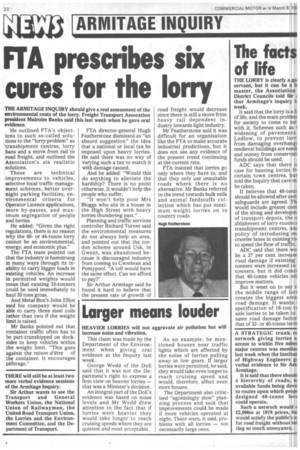Larger means louder
Page 24

If you've noticed an error in this article please click here to report it so we can fix it.
HEAVIER LORRIES will not aggravate air pollution but will increase noise and vibration.
This claim was made by the Department of the Environment when giving oral evidence at the Inquiry last week.
George Wedd of the DoE said that it was not the Department's right to express a firm view on heavier lorries — that was a Minister's decision.
An integral part of the DoE's evidence was based on noise levels and Mr Wedd drew attention to the fact that if lorries were heavier they would take longer to reach cruising speeds where they are quietest and most acceptable. As an example, he mentioned houses near traffic lights which are affected by the noise of lorries pulling away in low gears. If larger lorries were permitted, he said, they would take even longer to reach cruising speed and would, therefore, affect even more houses.
The Department also criticised "agonisingly slow" planning process and said that improvements could be made if more vehicles operated at night. There were, it said, problems with all lorries — not necessarily large ones.












































































































































































